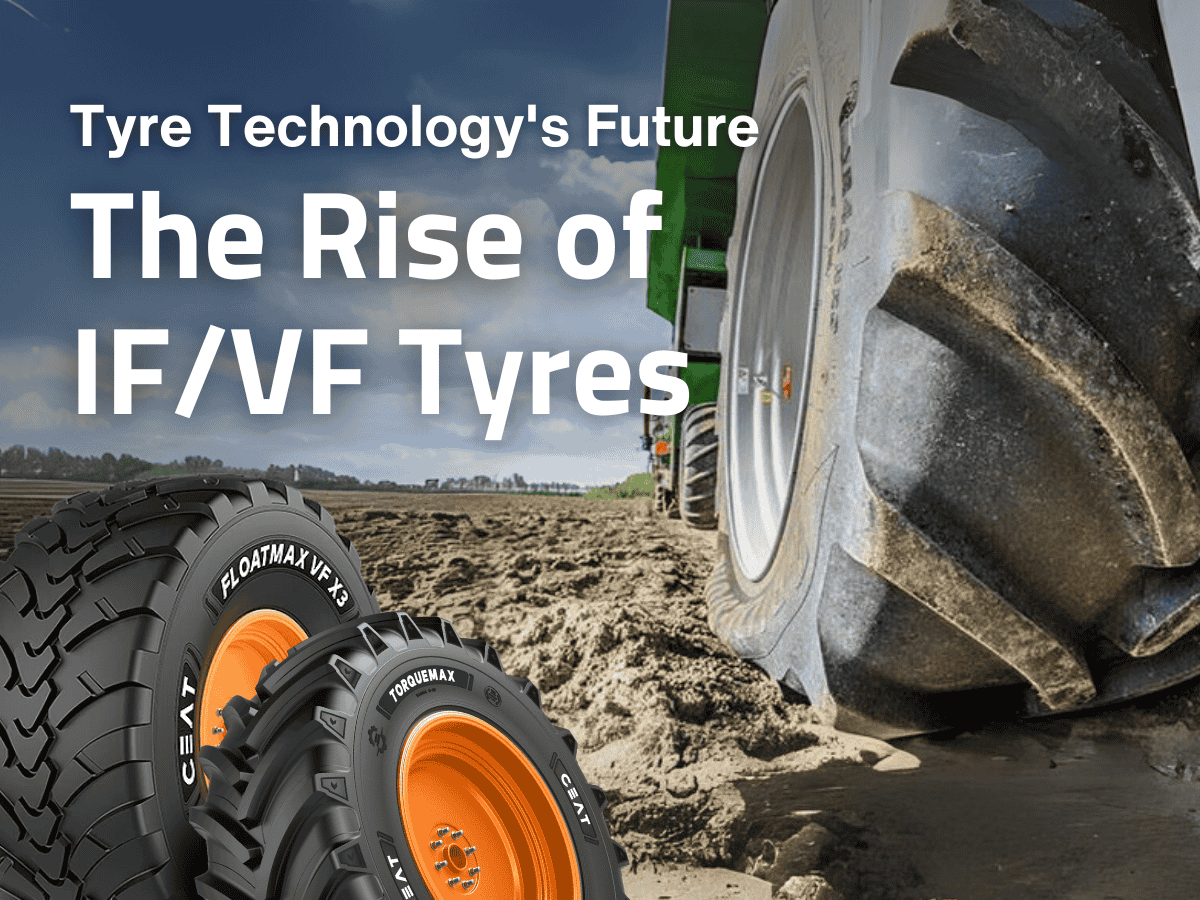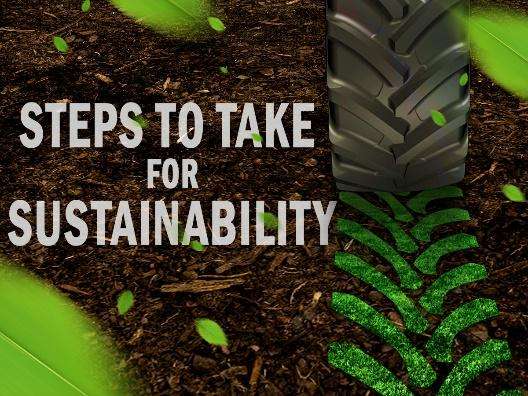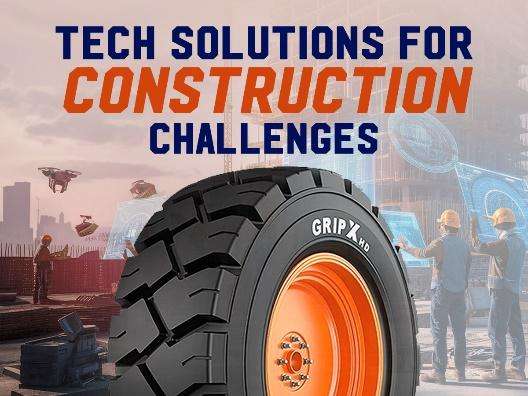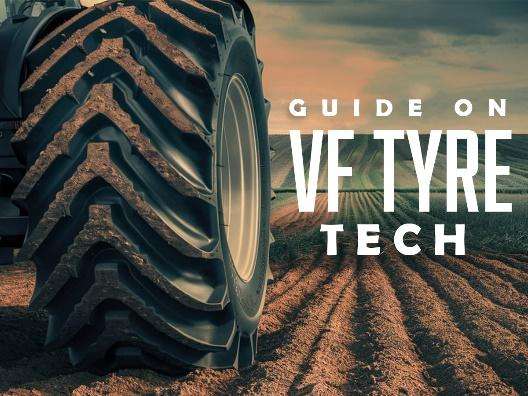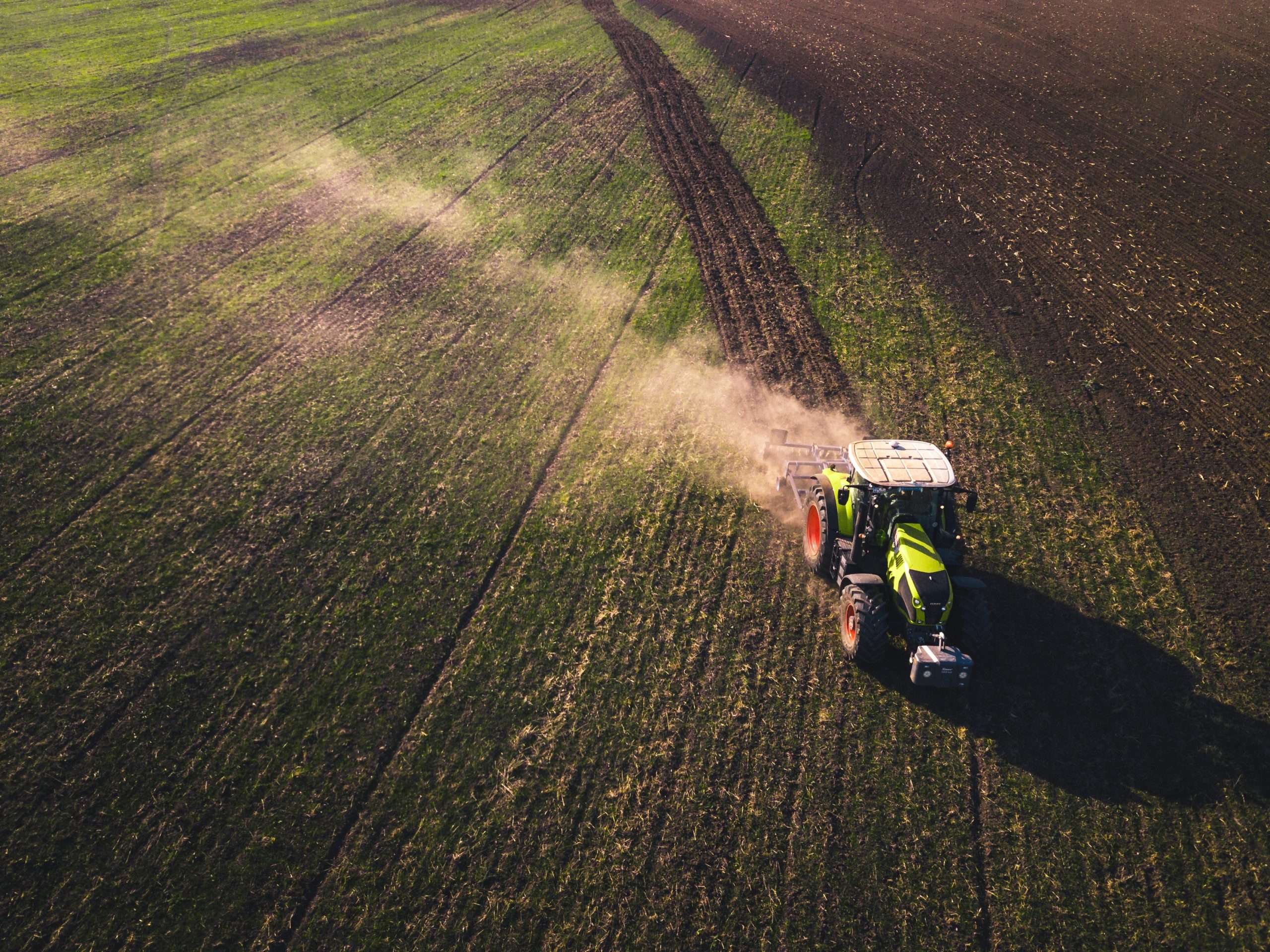ceat-speciality:blogs-tags/all,ceat-speciality:blogs-tags/technology
The Future of Tyre Technology: The Rise of IF/VF Tyres
Tue, 31 Dec 2024 | PRODUCTS
The world of automotive technology evolves rapidly. One area that’s making significant strides is tyre technology. Whether you’re driving on highways, navigating rugged terrain, or operating heavy machinery in agriculture and construction, tyres play a pivotal role in ensuring performance, safety, and efficiency. One of the most promising advancements in this field is the rise of IF/VF (Improved Flexion / Very High Flexion) tyres. These tyres are revolutionising industries, from agriculture to construction, by offering greater load capacities, better performance, and enhanced durability. This blog takes an in-depth look at IF/VF tyres, their advantages, and the potential they hold for the future.
Understanding IF and VF Tyres
Before diving into the future of these tyres, it’s essential to understand what IF/VF tyres are.
- IF (Improved Flexion) Tyres: These tyres are engineered to allow for a larger air volume while maintaining the same external dimensions as standard tyres. This larger air volume provides better flotation, enabling the tyre to support more load at lower pressures. The result is improved traction, less soil compaction, and a smoother ride.
- VF (Very High Flexion) Tyres: VF tyres take the benefits of IF tyres a step further. These tyres are designed to carry even higher loads at lower inflation pressures. VF tyres can withstand up to 40% more weight compared to standard tyres at the same pressure. This makes them particularly valuable in sectors such as agriculture and construction, where heavy loads are common, and maintaining ground integrity is critical.
The evolution from traditional tyres to IF/VF tyres represents a significant leap forward in tyre technology, designed to meet the increasing demands for better performance, durability, and cost-effectiveness in heavy-duty applications.
Why IF/VF Tyres Are Gaining Popularity?
- Increased Load Capacity with Lower Pressure
One of the most significant advantages of IF/VF tyres is their ability to carry heavier loads without needing to increase inflation pressures. Lower tyre pressure results in less wear and tear on the tyre itself, as well as the equipment and machinery it supports. This is especially important in agriculture, where the ability to carry heavier loads without damaging crops or soil is essential. Additionally, this capability reduces soil compaction, allowing for better crop yield and healthier soil over time.
- Improved Fuel Efficiency
Lower inflation pressures in IF/VF tyres also lead to reduced rolling resistance. With less energy required to move the vehicle or machinery, fuel efficiency improves. This is particularly beneficial for businesses operating large fleets of vehicles or machinery, as the cost savings in fuel can be substantial over time. Additionally, less rolling resistance leads to reduced wear on the vehicle’s drivetrain, contributing to lower maintenance costs.
- Enhanced Durability and Longevity
IF/VF tyres are built with advanced rubber compounds and reinforced structures that enhance their durability. The increased air volume and flexibility allow these tyres to absorb shocks and impact better, reducing the risk of punctures, tears, and other forms of damage. This results in a longer lifespan compared to traditional tyres, leading to lower replacement costs and less downtime.
- Better Traction and Performance
The flexibility in IF/VF tyres allows them to better conform to the surface they are driving on, providing superior traction. Whether on soft agricultural soil, rough construction sites, or muddy terrains, these tyres perform exceptionally well by distributing the weight more evenly. The enhanced traction improves overall performance, particularly in off-road conditions.
- Environmental Benefits
The ability to reduce soil compaction, improve fuel efficiency, and increase the longevity makes IF/VF tyres a more sustainable option. Their reduced impact on the environment is an essential consideration for industries that are increasingly looking to meet environmental standards and reduce their carbon footprint.
The Future of IF/VF Tyres: What Lies Ahead?
As industries continue to evolve, the demand for higher performance tyres that can meet the challenges of modern machinery and diverse terrains will only increase. The future of IF/VF tyres is bright, driven by both technological advancements and the ongoing need for sustainable solutions. Several key trends are likely to shape the future of IF/VF tyre technology.
- Development of Advanced Materials
The next generation of IF/VF tyres will likely incorporate advanced materials, such as synthetic rubber compounds and lightweight metals, to further enhance durability, strength, and weight efficiency. This could make construction and industrial tyres even more resilient to damage and better suited for extreme environments.
- Wider Applications Across Industries
While IF/VF tyres are already widely used in agriculture and construction, their adoption is expected to expand into other sectors, including mining and forestry. The advantages of IF/VF tyres—particularly their ability to support heavy loads while reducing environmental impact—make them ideal for a broader range of applications. As technology advances and more manufacturers adopt these tyres, their usage will become more widespread.
- Environmental Sustainability
As the pressure to adopt greener technologies increases, the tyre industry is expected to make significant strides in developing more eco-friendly IF/VF tyres. From sustainable production processes to the use of renewable materials, tyre manufacturers will likely focus on reducing the environmental footprint of IF/VF tyres. This will appeal to industries looking to align with sustainability goals.
Conclusion
The rise of IF/VF tyres marks a new era in tyre technology, offering enhanced load capacities, improved performance, and greater durability. As industries continue to demand more from their equipment, the versatility and efficiency of IF/VF tyres will become even more indispensable. With advancements in smart technologies, materials, and sustainability, the future of tyre technology is bright. The transition to IF/VF tyres is not just a trend; it is a forward-thinking solution to the challenges of modern driving and heavy-duty operations.



